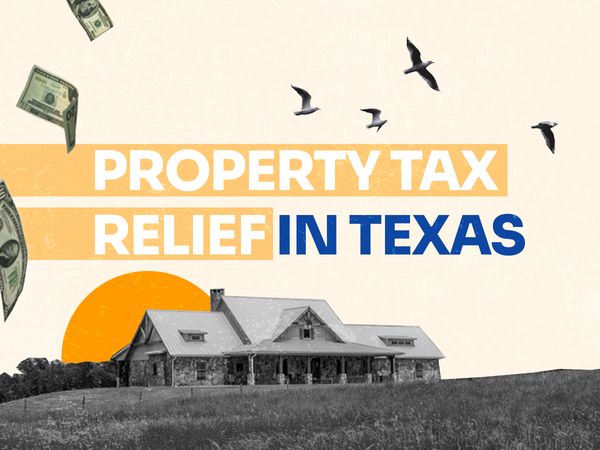If you want to understand what an overestimated property tax burden looks like, simply talk to people on fixed incomes or senior citizens who are dependent on their pensions.
According to the Comptroller's report on property tax rates and levies in Texas, the average property tax bill in Texas was $3,215. That's a significant amount of money that not only hurts the pockets of those on a fixed income
For everyone living in Texas, this is why property tax relief shouldn't be a novel idea, but a necessity.
Believe it or not, most of the people we've encountered have hesitated to protest their property tax bill for the longest time because of one thing: the complexity of the process.
While it's true that the process can be challenging, we want to show you that it's not impossible either. More importantly, you should file a protest, if it feels appropriate because you deserve to pay the right amount of tax!
For Texan homeowners wondering about property tax relief options, you need to understand the different types of property tax exemptions:
Homestead exemptions:
This is a general residential homestead exemption for Texas homeowners that helps them reduce the taxable value of their homes by a certain amount. For example, you can claim the general $40,000 residence homestead exemption in Texas by applying some specific Texas property tax relief programs provide.
Once your application is processed, you can have the first $40,000 of your home's value exempted from your property tax bill.
Senior and disability exemptions:
Along with the homestead exemption plan, senior citizens over 65 and people with disabilities are also eligible for an additional $10,000 exemption under this scheme.
Agricultural and open space exemptions:
Farmers, ranchers, and timber producers using the land for agricultural purposes, such as farming, ranching, or timber production, as well as landowners using their open space for purposes like wildlife management and forestry, can apply for agricultural and open space exemptions, respectively.
The tax relief amount for these two categories depends on the type of land, its size, and the county in which the land is located. To give you some idea, the paper published by The Texas Comptroller of Public Accounts in 2022 mentioned that open space exemptions save landowners about $500 million per year in property taxes.
These exemptions are great, but some specific Texas property tax relief programs provide even more protection to the public from high property tax bills.
1. Texas property tax relief for seniors:
Apart from the general $40,000 exemption and the $10,000 senior citizen exemption, over -65/disabled homeowners have other savings opportunities, including a chance to freeze their school property taxes at the current rate.
For example, an average school tax rate is $1.50 PER $100 valuation in Texas. Considering this, if a person owns a house in Texas worth $300,000, they would pay roughly $4,500 in school taxes each year. Now, if they decide to apply for the over-65/disabled homestead exemption and get their school taxes frozen at the current rate, they would have to pay only $4,050, saving them $450 per year.
The amount of savings will differ by county, but in most cases, people can save a significant amount, especially for Texas homeowners living in areas with high property values and school taxes.
2. Texas Property Tax Reform and Relief Act of 2017
The Texas Property Tax Reform and Relief Act of 2017 (SB2) is one of the most important acts passed in state history, and it relieved people from unfair property tax burdens to a great extent.
The act imposed strict limitations on the local government's ability to increase property tax rates without voter approval. As a result:
- Homestead exemption limits increased.
- Seniors and people with disabilities received additional relief plans.
- A new school property tax rate cap was created to limit school districts’ property tax rates.
The most crucial benefits the act provided to the general public consisted of:
- Mandatory transparency from the government in providing clear information to taxpayers on the effects of proposed tax rates on their property tax bills.
- Allowing taxpayers to actively participate in public hearings to express their doubts and concerns regarding the property tax bills.
In terms of the benefits, the act also establishes a general revenue cap of 3.5% on the amount the local governments can increase property tax revenue without voter approval. The summary of S2B on the Comptroller's website mentions the same.
Following this cap, for example, if a city's tax revenue is $20 million, the property tax revenue cannot be increased by more than $700,000 (3.5%) without voter approval.
3. Texas Property Tax Relief 2023:
In 2023, the Texas legislature passed some promising new property tax relief measures that strengthen resident protection against unwarranted property tax increases and provide financial security to Texas residents.
Some important points shared by the Office of the Texas Governor:
- Homestead exemption increased to $100,000
- School property tax rate reduced by 10.7 cents per $100 valuation
As a result, an average homeowner can enjoy Texas property tax relief totaling more than $1,200 per year and $1,400 for people over 65 or with disabilities.
It's great to witness the government taking such empowering steps toward providing much-needed relief to the homeowners of Texas for their high property tax bills.
We at Bezit not only encourage you to protest your high tax bills but also provide the tools and means to achieve maximum success with your protest. We have already been able to help 500+ homeowners save thousands of dollars, and we’re set to help hundreds more with the expert team at Bezit. If you want to lighten your tax burden in Texas, check out our tool to calculate your estimated savings, and then let’s start the process to save you that money!

